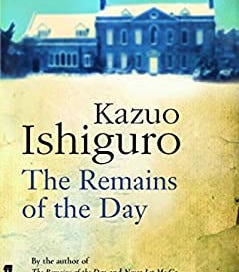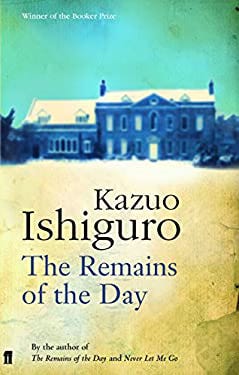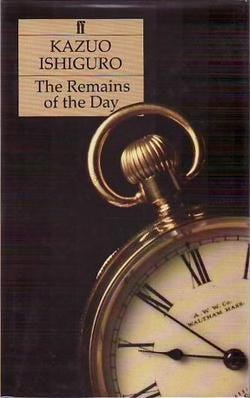Welcome to Reading Revisited, a place for friends to enjoy some good old-fashioned book chat while revisiting the truth, beauty, and goodness we’ve found in our favorite books.
Happy Friday Fellow Readers,
I hope you all had a good long weekend with your friends and family and maybe found a few extra minutes with a book (though sometimes it seems like the opposite happens over breaks). Summer is now officially in full swing for most people. We are still working on developing our routine that encourages more freedom and leisure, but also includes some structure and purpose (and books).
This year we are doing what I was calling “Fairy Tale Summer,” which really only meant that I was missing fairy tales and wanting to read one at least a few days a week with the kids. But apparently it is a whole thing, unbeknownst to me. So far it has been fun. We have been working through a copy of Grimm’s Fairy Tales and reading a story each day before breakfast. It has been a refreshing way to start out the day and easing some of the hurry and chaos that I feel before breakfast.
I wanted to share a funny little anecdote about this in our house. The reasons I share are twofold. First, because kids are hilarious. And second, because it shows that our tastes can develop to love the good things in life more fully.
The first day of Fairy Tale Summer I dutifully get the book out and read a story. I think it is going swimmingly, there was barely any discipline or threats to be had and even the little kids sat quietly and listened.
However, as soon as I finished and announced the title of tomorrow’s story one of my (very honest) children pipes up and says, “I don’t think I’m going to like that one.”
“Well, why not?” I’m sure I retorted in my most loving and sweet tone.
“Because I didn’t like this one very much.”
Alas, all enthusiastic literary moms need their bubbles burst by children with subpar taste every now and again. I am happy to report that all the children, including the above opinion giver, are enjoying the fairy tales very much after a few weeks of this habit and I am encouraged that my stubbornness persistence has helped better their taste.
Onto the real business…
A Thought Before We Start
I started reading The Remains of the Day this week and had a slight panic that I might not have any thoughts about the book. I had read it before, but my only memories were of the bare plot and that I had enjoyed the prose. I had no pre-conceived deep thoughts that I was looking forward to sharing with you all. But then I started reading and noticing. All of the sudden I couldn’t stop the thoughts and connections from coming.
I say all of this to encourage you to simply notice as you are reading (and write it down before you forget, if you’re anything like me). George Saunders (author of our book about books from last year, A Swim in a Pond in the Rain) recommends this as a reading strategy and it seems so simple but it has been so helpful in my reading life. Instead of feeling pressure to make huge connections, simply notice details that the author seems to be drawing attention to and then the connections will come as you read more (or as you discuss with other people).
And on that note, I hope that some of these thoughts inspire you to notice details and make connections. That is one of the reasons that reading in community is so enjoyable and important!
Midway Musings
Prologue
Is Stevens’ statement that he has seen more of England than most true? Is this setting us up for the book’s musings. Will it turn out that while physically seeing England he will come to understand his memories of the England he has seen in the house?
Stevens seems to be representing an England that is reluctant to change (this takes place 11 years after WWII)…this reminds me of Brideshead Revisited in this aspect.
The jokes Farraday makes about Miss Kenton makes me think that maybe Stevens is more blind than he realizes.
Everything is always business…
Day One Evening
Great country, great butlers, great men…I wonder if Stevens is a great butler and if we will find out by the end of the book.
The setting and time period (they span between the wars to after WWII) is similar to Jeeves and Wooster (July 2023), but the tone is so different.
When he reflects on the Hayes Society rules that a great butler must be attached to an old family I wonder about Stevens. He is attached to an old family house, but it now belongs to an American (so I assume new money/businessman). Does this represent the changing world after the second war?
The story about the butler and the tiger must be important and seems like it might be a key to interpreting the book. Great butlers downplay and handle major disturbances like they are no big deal. A story within a story is always important.
Day Two Morning
The reflections on his dad’s decline makes me wonder if maybe he is in his decline too. He mentioned he was making mistakes at the beginning…
I think Stevens is also looking at the ground “as though he hoped to find some precious jewel he had dropped there” as he tells his story and goes through his past
I think we may need to ask how much we can trust Stevens, is he actually blind to reality or just willfully blind to the changing world?
The whole incident with the birds and the bees gives all the Jeeves and Wooster vibes…but also seems to be drawing attention to the fact that maybe Stevens doesn’t know about women (it happens right after the incident with Miss Kenton).
Stevens’ dad working himself to death may be foreshadowing his own over emphasis on work (Farraday said he needed a break!)…the image of his dad having to have his hands removed from the trolley is a strong one.
People keep telling Stevens that he is doing a good job (I counted three, but possibly more).
He regards the day he worked through his dad’s death as a triumph…I am left feeling so sad for him. How does Ishiguro make me feel so differently from his first person narrator?
Day Two Afternoon
We find out the Hayes Society is gone…
Stevens is realizing that he has more nuanced thoughts through the act of writing/thinking…will he gain more sight on this trip as well?
Stevens is confused for a gentleman, then named a great butler, but then denies having worked for Lord Darlington at all…
I think this is the second time that Stevens is confused with Lord Darlington/a gentleman in general which makes me think that Ishiguro wants us to see that a butler’s identity is very much tied up with the house/man they serve…so why is Stevens denying Lord Darlington?
In Case You Missed It
An Introduction to The Remains of the Day and Kazuo Ishiguro (w/ Podcast Links)
Book Drop Day (there’s a lot of posts so sit down and grab a cup of coffee and enjoy! I will post a shortened list of the books for next year soon!)
Okay, did I say that was going to be quick? Well, I am trying, but apparently I have a similar experience with writing as I mentioned above with reading. I don’t think I have anything to say and then all of the sudden I do. I hope this is enjoyable and helpful as you read each month. If you are having thoughts you want to share and chat about be sure to leave a comment here or use the #bookchat channel on our Slack page. I love to keep the conversation going throughout the month!
See you next week! Look out for another essay in your inbox on Monday and a Monthly Bookshelf later in the week. Remember that my links to bookish (and other) articles will now be shared on the Notes section of the Substack app. So hop on over there to see more people writing and thinking about the bookish life! Until then…
Keep revisiting the good books that enrich your life and nourish your soul.
A Few Reminders
If you are wanting to get in on the in person or virtual community please contact me!
*As always, some of the links are affiliate links. If you don’t have the books yet and are planning to buy them, I appreciate you using the links. The few cents earned with each purchase you make after clicking links (at no extra cost to you) goes toward the time and effort it takes to keep Reading Revisited running and I appreciate it!







I cannot believe how much I loved this book. I’m almost angry I haven’t discovered it up until this point. I think one of the most intriguing parts of the experience for me was how Ishiguro creates a character you sympathize with so deeply, but also forces you as a reader to realize the ways in which this character is limited in their perspective such that you have to act almost like a detective to understand what’s “really” going on. It’s a very different kind of unreliable narrator experience. And then as you approach the end you wonder if maybe there are some things this unreliable narrator sees/understands better precisely because of the limitations of his mindset and worldview